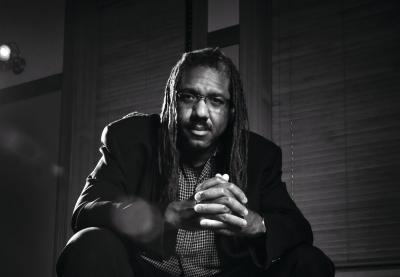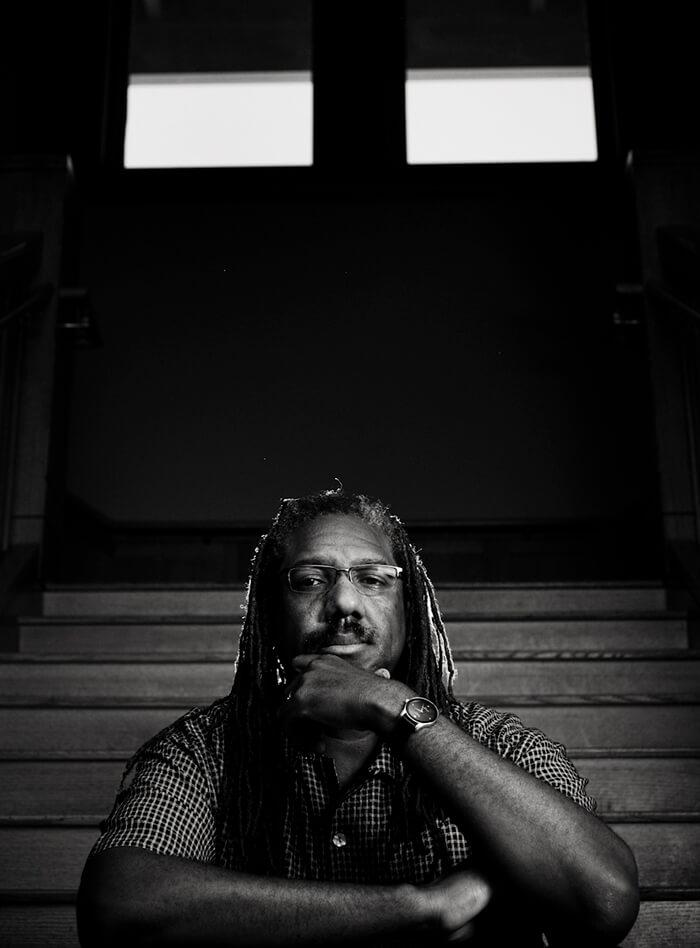The n-word is unique in the English language. On one hand, it is the ultimate insult—a word that has tormented generations of African Americans. Yet over time, it has become a popular term of endearment by the descendants of the very people who once had to endure it. Among many young people today—Black and white—the n-word can mean friend.
Neal A. Lester, dean of humanities and former chair of the English department at Arizona State University, recognized that the complexity of the n-word’s evolution demanded greater critical attention. In 2008, he taught the first ever college-level class designed to explore the n-word. Lester said the subject fascinated him precisely because he didn’t understand its layered complexities.
“When I first started talking about the idea of the course,” Lester recalled, “I had people saying, ‘This is really exciting, but what would you do in the course? How can you have a course about a word?’ It was clear to me that the course, both in its conception and in how it unfolded, was much bigger than a word. It starts with a word, but it becomes about other ideas and realities that go beyond words.”
Lester took a few minutes to talk to Teaching Tolerance Managing Editor Sean Price about what he’s learned and how that can help other educators.
How did the n-word become such a scathing insult?
We know, at least in the history I’ve looked at, that the word started off as just a descriptor, “negro,” with no value attached to it. … We know that as early as the 17th century, “negro” evolved to “nigger” as intentionally derogatory, and it has never been able to shed that baggage since then—even when Black people talk about appropriating and reappropriating it. The poison is still there. The word is inextricably linked with violence and brutality on Black psyches and derogatory aspersions cast on Black bodies. No degree of appropriating can rid it of that bloodsoaked history.
Why is the n-word so popular with many young Black kids today?
If you could keep the word within the context of the intimate environment [among friends], then I can see that you could potentially own the word and control it. But you can’t because the word takes on a life of its own if it’s not in that environment. People like to talk about it in terms of public and private uses. Jesse Jackson was one of those who called for a moratorium on using the word, but then was caught using the word with a live mic during a “private” whispered conversation.
There’s no way to know all of its nuances because it’s such a complicated word, a word with a particular racialized American history. But one way of getting at it is to have some critical and historical discussions about it and not pretend that it doesn’t exist. We also cannot pretend that there is not a double standard—that Blacks can say it without much social consequence but whites cannot. There’s a double standard about a lot of stuff. There are certain things that I would never say. In my relationship with my wife, who is not African American, I would never imagine her using that word, no matter how angry she was with me. …
That’s what I’m asking people to do—to self-reflect critically on how we all use language and the extent to which language is a reflection of our innermost thoughts. Most people don’t bother to go to that level of self-reflection and self-critique. Ultimately, that’s what the class is about. It’s about self-education and self-critique, not trying to control others by telling them what to say or how to think, but rather trying to figure out how we think and how the words we use mirror our thinking.
The class sessions often become confessionals because white students often admit details about their intimate social circles I would never be privy to otherwise.
What types of things do they confess?
In their circles of white friends, some are so comfortable with the n-word because they’ve grown up on and been nourished by hip-hop. Much of the commercial hip-hop culture by Black males uses the n-word as a staple. White youths, statistically the largest consumers of hip-hop, then feel that they can use the word among themselves with Black and white peers. … But then I hear in that same discussion that many of the Black youths are indeed offended by [whites using the n-word]. And if Blacks and whites are together and a white person uses the word, many Blacks are ready to fight. So this word comes laden with these complicated and contradictory emotional responses to it. It’s very confusing to folks on the “outside,” particularly when nobody has really talked about the history of the word in terms of American history, language, performance and identity.
Most public school teachers are white women. How might they hold class discussions about this word? Do you think it would help them to lay some groundwork?
You might want to get somebody from the outside who is African American to be a central part of any discussion—an administrator, a parent, a pastor or other professional with some credibility and authority. Every white teacher out there needs to know some Black people. Black people can rarely say they know no white people; it’s a near social impossibility. The NAACP would be a good place to start, but I do not suggest running to the NAACP as a single “authority.” Surely there are Black parents of school children or Black neighbors a few streets over or Black people at neighboring churches. The teacher might begin by admitting, “This is what I want to do, how would you approach this? Or, how do we approach it as a team? How can we build a team of collaboration so that we all accept the responsibility of educating ourselves and our youths about the power of words to heal or to harm?” This effort then becomes something shared as opposed to something that one person allegedly owns.
It’s about self-education and self-critique, not trying to control others by telling them what to say or how to think, but rather trying to figure out how we think and how the words we use mirror our thinking.
How might a K-12 teacher go about teaching the n-word?
At the elementary level, I can imagine bringing in children’s picture books to use in conjunction with a segment on the civil rights movement, because students talk about the Rev. Dr. Martin Luther King Jr. Look at some of the placards [held by white people at 1960s civil rights] protests and see if some of them have been airbrushed or the messages sanitized. Talk about language, about words and emotion, about words and pain. Consider the role of words in the brutal attacks on black people during slavery, during Jim Crow, during the civil rights movement. Consider how words were part of the attacks on Black people.
Depending on how old the students are, a teacher might talk about the violence that involved lynching and castration, and how the n-word was part of the everyday discourse around race relations at the time. Then bring in some hip-hop, depending again on the age. If these are middle school students or high school students, a teacher can talk specifically about hip-hop and how often the n-word is used and in a specific context. … There are many ways that a teacher can talk about the n-word without necessarily focusing on just one aspect—like whether or not Huck should have used the n-word when he references Jim [in Huckleberry Finn]. Any conversation about the n-word has to be about language and thinking more broadly.
What should teachers keep in mind as they teach about the n-word?
Remember the case of the white teacher who told the Black student to sit down and said, “Sit down, nigga.” And then the teacher is chastised by the administration and of course there is social disruption. He said, “I didn’t say ‘Sit down, nigger,’ I said ‘Sit down, nigga,’ and that’s what I hear the students saying.” I’m thinking, first, you are an adult, white teacher. Secondly, do you imitate everything that you see and hear others doing or saying? At some level, there has to be some self-critique and critical awareness and sensitivity to difference. Just because someone else is doing it doesn’t mean that I do it even if and when I surely can.
In my courses, I’m more interested in raising questions than in finding answers to them. I think the questions lead to potential self-discovery. It’s not about whether or not a person uses the n-word. I try to move the class beyond easy binaries—“Well, Blacks can use it, but whites can’t.” That line of thinking doesn’t take us very far at all. What we are trying to do, at least the way I have conceptualized and practiced this discovery, is so much more. The class strives to teach us all manner of ways to talk about, think about and to understand ourselves, and each other, and why and how we fit in the rest of the world.


